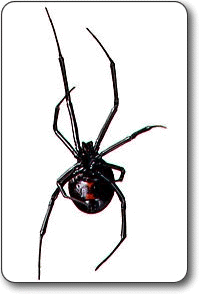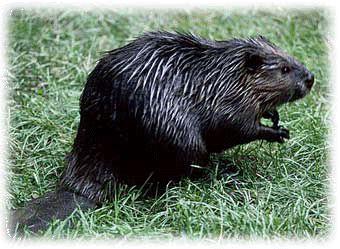LANGUAGE
“Sticks and stones can break my bones but words will never hurt me.” It seems that my mother taught me this little saying and wanted me to know that actions are important and words are...well...just words. So why did she tan my hide when I told her to go fuck herself?Language is chapter “numero uno” because it’s the medium through which I will communicate all the other chapters. Oh, and I contort every ounce of poetic juice that I can out of language. I love language and it doesn’t love me. See? In any case, we should talk a bit about this wonderful medium that we all use and how humans screw it up. I mean “screw” in both ways, as a perfectly confusing example of the meaning of the sentence in which I used it.
For the purposes of this book, I will use only the King’s English. I find the Queen’s English much too impolite. Did I get that backwards? Ask yourself that question again at the end of this chapter.
Unlike the Queen’s English, the King’s English changes and evolves all the time. Rules that exist today did not exist as little as 100 years ago. In a few hundred more years Shakespeare will seem like a foreign language, as if it doesn’t already. In fact, there used to be a different name for English a long time ago. It used to be called German.
And what about all those little rules that were so important to the silly lady that tried to teach you this thing called English?
Shhhh....come very close...THE RULES MAKE NO SENSE!!!
In fact, the English that a 5-year old child speaks is just as complex in its basic structure as the English that an adult speaks but the child’s rules make sense. The child then spends his or her formative years learning how to make the language not make sense. Yeah, that makes sense?
Now, to all you 21st century language experts who were soooooo offended because I have said, “Suck, fuck, hell, penis, pissed-off, screw, Jesus (don’t know if this one counts or not), and Goddamned (pretty sure this one counts).” Please understand that language evolves over time and words change their meaning. Words come and go and they merge together. New words crop up and old words go away.
In fact, Mr. Webster has to update his dictionary on an annual basis. So, the nasty meaning of any particular word may be time sensitive. Someone from another time might find the words that offend you to be perfectly acceptable in polite company and this same individual might find an entirely different set of words to be offensive.
For example, the current undisputed heavy weight champion of all unpublished words is "fuck.” However, if you lived at a different time you might think that the letters F.U.C.K stood for Fornication Under Consent of the King. Apparently, a few hundred years ago in merry old England the king had a law that forbade sex without his permission. If you wished to impregnate your wife, then you needed to get permission from the king. You were required to place a placard on your bedroom door that read F.U.C.K. People would casually walk by and say, "Oh, they must be fucking."
A number of these words such as suck, hell, penis, screw, and I hope that you will all agree, Jesus, have perfectly OK alternative meanings due to the heinous and “screwed-up” nature of the Queen’s English.
"Shit" is another word that has evolved over time. It was originally an acronym that meant Ship High In Transit. This is a nautical term referring to the proper way to ship animal waste. If the waste is dry, then it is light and easy to transport. If it gets wet, then fermentation begins and methane gas is produced. An explosion could happen if someone were to enter the excrement filled hull of a ship puffing a stogie. Therefore, the letters S.H.I.T were placed on all packages containing animal waste.
Actually, I must confess that the fuck and shit stories are not entirely accurate. I found them on-line and really liked them and included them in this chapter about language but later found out that they are classic examples of etymology legends. It seems that there are a number of fake word origins that have cluttered the internet over the last few years. It's really pretty interesting. Go to snopes.com if you want to read more about it.
In any case, the basic point is still the same. Words change over time.
It turns out that the words fuck and shit are more like 500-700 years old and their exact origin is complex and multi-factorial.
My fiancé likes to call these inappropriate words "unpublished words." Every time she says it like that I think to myself, "I guess she doesn't read the same books and magazines that I'm reading."
Actually, one of the reasons that it is so difficult to determine the exact etymology of off-color words like shit and fuck is precisely because they were unpublished 500 years ago. When the printing press was new it would not have occurred to anyone to actually print a word that meant to evacuate your bowels or to have sexual intercourse. Therefore, it is hard to track the use of these words at that time.
Since it is unlikely that these words existed 1000 years ago and since there are so many words that are grammatically similar, it is almost certain that they arose through gradual changes in meaning or through splices and combinations with other words. Their meanings, however, have generally been the same for at least half a millennium.
Hey, I just thought of a word and its meaning that we could make up in about 500 years. Hell, we could make this one up in about 5 months. You could say,
“They got Cheneyed.”
It means to get screwed on a large scale by someone who truly believes he is being helpful. Unfortunately, some wisenheimer in the future will likely say that this is an etymology legend.
In summation, “Suck-my-dick if you think I’m cussing.”
Hmm…my bad. Although each individual word in the last sentence could have a perfectly OK alternative meaning, when taken together there is a significantly nasty content that simply can’t be ignored. This sentence is conceptually, content-wise, linguistically and probably several other ways nasty. Sorry about that one.
However, the shock value was great! You were astonished or alarmed or offended, or whatever, but there was a moment of emotion that you felt. As a writer I think that is great. I am trying to cause you to experience emotion with only my pen.
The key is to do that without going over-the-top and offending you to the point that you will not want to continue reading. It can be a delicate balance but I will try to keep all my future profanity appropriate to the context and not simply gratuitous. If that is OK with you, then please continue reading.
I hope that you are still with me and I have not lost you in all this language mess but now I want to focus a little better. Here is the point of this chapter:
Language is fluid, flexible, changing, and above all an instinct.
It isn’t taught to us at all. It’s an instinct that is hard-wired into the circuitry of the human brain and we just do it automatically. The old lady who yells about grammar rules did not make up the English language...or any other languages for that matter. It turns out that all languages everywhere are essentially the same in complexity.
And get this, twins abandoned on a deserted island at the age of 2 will develop a language every bit as complex as the Queen’s English. This language they invent will differ a little in that it isn’t likely to have all the non-sense that we have inflicted over the years onto the Queen’s English but it will never-the-less be just as complex in its basic structure.
Humans instinctually develop language between the ages of 2-6. Like spiders spin webs and bats use sonar and birds fly south, humans do complex language. It’s the only thing that separates us from all the other animals. Ha...you thought it was that we don’t feel up young female virgins...guess again!
The next time you feel yourself getting offended by what someone is saying stop for a moment and ask yourself, “Is it the content of what is being said or is it simply the language that offends me.” If it’s just the language, then I hope you have a slightly more enlightened idea of what language is and how we use it.
I have an idea, why don’t you listen to some rap music and try to actually hear the content. When you do, you will be astonished that the poetry in rap is pretty damn good. It was all that gross linguistic stuff that offended you and made you not listen.
Well, this has been a pretty elaborate attempt on my part to excuse my blatant and irresponsible use of profanity. I genuinely do not wish to make a totally self serving argument designed to allow me to do what I wanted to do in the first place. Perhaps, profanity is instinctual to Levystien...You think?
In reality, I use profanity but I use it in context and for dramatic purpose. I also use it to emphasize punch lines. In addition, I tend to contort the language for the sake of humor and I require a bit of latitude to do that.
The real purpose of this chapter is to suggest that you not focus on being offended by words.
They are just words.
•
In regards to instincts, here is a little vignette. Take it for what its worth:
INSTINCTS
I looked at all the living creatures on our planet and noticed that a great number of them are hard at work performing intricate tasks. In many cases, one species is doing something that no other species does. I wondered why spiders spin webs, why beavers build dams, why bats use sonar, why geese navigate by the stars, and why humans communicate with complex language. I decided to go around and ask each of them why they do what they do.
“Mr. Black Widow, why do you spin webs?”
“I’ve been sent by arachnid headquarters to lay a trap for the flies. These ruthless Diphtheria thieves fly around and steal refuge. They contaminate everything. If I can spin my web in just the right place, I can catch some flies and prevent further damage. The odds are against me but I would rather die than surrender.”
“Mr. Beaver, why do you build dams?”
“If the water is allowed to flow, then the fish will go downstream. Once they make it to the open sea, they may not return. If they don’t return, then the ecosystem of the river will die. Our food supply will vanish and there will be no more beavers. Some of us have sworn an oath not to let this happen. I will work on the dam for as long as it takes.”
“Mr. Bat, why do you use sonar?”
“I have no eyes so I use sonar to navigate the cave and to locate the enemy. There is a flying army of insects that would take over the world but the bats are the Earth’s protectors. I work diligently every night to identify each insect and quickly digest it. I will never conquer the insects but as long as I help to keep their numbers down, I have done my job. I’m proud to serve the planet.”
“Mr. Goose, why do you fly south in the winter?”
“As the cold night dawns, all of us geese narrowly escape. I follow a southern route dictated by the constellations. I head for the warmth of the tropics and I dream of a new land. A place to start over awaits me at the end of my journey. I have a long way to go but I’m determined to reach my final destination.”
“Mr. Human, why do you communicate with complex language?”
“I speak and write so I can take information from my brain and put it into the brains of other humans. In this way I can cure the sick, feed the hungry, send men to the moon, drill for oil, save the whales, navigate the oceans, and even contemplate existence.”
I thoroughly enjoyed each and every explanation. I wondered if all these creatures spent years learning these intricate tasks for exactly the purpose that they described. Or, maybe, some freak genetic mutation sprung up and had such evolutionary advantage that it quickly spread to the entire species.
I wondered if it mattered and then I asked, “Why do you really do these things?”
The black widow said, “I make webs and catch flies because that is what black widows do.”
The beaver said, “I make dams because that is what beavers do.”
The bat said, “I use sonar and catch insects because that is what bats do.”
The goose said, “I fly south in the winter because that is what geese do.”
The only one blushing was the human and he said, “I wish that the altruistic explanations that I gave you were the real reasons that I communicate as I do.”
I asked, “Then, why do you speak with complex language?”
He said, “Because that is what humans do.”
•
Why is it so important to make a big deal out of language being fluid, flexible, changing, and above all an instinct?
To be honest, when I wrote this question I didn’t have an answer to it. At first, I thought up some silly answers but realized there was something more. After several gut wrenching days of personal turmoil (Not really, I only spent about five minutes. Do you think that the “several gut wrenching days” line sounds pretty good?). In any case, here’s what I came up with:
The thing is that I’m an idea man. No, I’m a big idea man. I mean, an overall big picture idea man. Even though the devil can be in the details, as someone once said, I don’t care about the devil and I don’t care about the details. Therefore, I frequently mess up the details and I hate it when people keep pointing out to me how I have messed up the details.
For example: The other day I was making the point that the “vast majority” of something did something. This guy pointed out to me that I was wrong. He said, “It’s not the ‘vast’ majority, it’s only 59%.”
I said, “Well, 51% is a majority unless you are George Bush.”
It was then pointed out to me that, yes, but it isn’t a vast majority. Does anyone reading this book understand that the vastness of the majority was not the point? Yeah, lets argue over whether 59% is a “majority” or a “vast” majority.
Now back to the current big picture point. Why is it important to make a big deal out of language being fluid, flexible, changing, and above all an instinct? It’s important to make a big deal out of language being fluid, flexible, changing, and above all an instinct because I want to use language in this book in a funny, dramatic, cynical, and occasionally bizarre way. I also want to make some really big overall points that have nothing to do with the language I’m using.
If you think that some guy created language…and that it has concrete rules that never change…and it’s something we learn…and it has details where the devil lives, then you should be reading War and Peace. You most definitely should not be reading any book written by Levystien.
So, please don’t read this book and complain bitterly about details that I failed to get perfectly correct. Don’t get bogged down criticizing this book due to language that you happen to find offensive. Try to see the big picture and, as they say in therapy, “Go with that.”
Remember, my mother told me that language is just words and that actions are important. She said this before I told her to go fuck herself. Come to think of it, my mom was right to teach me about sticks and stones and she was right to be angry at my use of a word that she finds offensive...but why?
SEX Table of Contents




